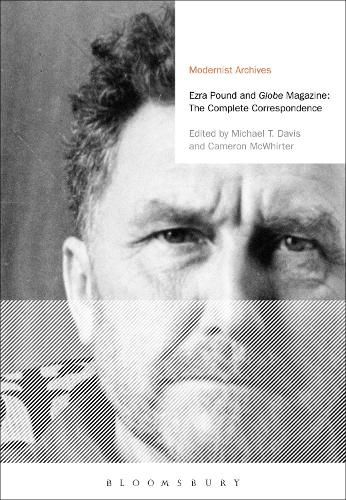Readings Newsletter
Become a Readings Member to make your shopping experience even easier.
Sign in or sign up for free!
You’re not far away from qualifying for FREE standard shipping within Australia
You’ve qualified for FREE standard shipping within Australia
The cart is loading…






In the summer of 1936, Ezra Pound agreed to take on the role of European Correspondent for a newly launched travel journal entitled Globe: The International Magazine. Ezra Pound and ‘Globe’ Magazine: The Complete Correspondence collects for the first time Pound’s writings for the journal and his extensive correspondence with one of its editors, James Taylor Dunn, and the leading writers who Pound himself attempted to recruit for the magazine. Numbering almost forty letters and twenty published and unpublished articles, these writings represent a darkly significant time in Pound’s thought as his infatuation with the rise of fascism took root.
Annotated throughout and supported by substantial explorations of the historical and cultural contexts of the writings, the book also includes a substantial bibliography of related writings and a biographical glossary of the major figures discussed in the correspondence and writing. Together, these texts represent an important resource for anyone interested in an important phase of 20th-Century literary modernism.
$9.00 standard shipping within Australia
FREE standard shipping within Australia for orders over $100.00
Express & International shipping calculated at checkout
In the summer of 1936, Ezra Pound agreed to take on the role of European Correspondent for a newly launched travel journal entitled Globe: The International Magazine. Ezra Pound and ‘Globe’ Magazine: The Complete Correspondence collects for the first time Pound’s writings for the journal and his extensive correspondence with one of its editors, James Taylor Dunn, and the leading writers who Pound himself attempted to recruit for the magazine. Numbering almost forty letters and twenty published and unpublished articles, these writings represent a darkly significant time in Pound’s thought as his infatuation with the rise of fascism took root.
Annotated throughout and supported by substantial explorations of the historical and cultural contexts of the writings, the book also includes a substantial bibliography of related writings and a biographical glossary of the major figures discussed in the correspondence and writing. Together, these texts represent an important resource for anyone interested in an important phase of 20th-Century literary modernism.